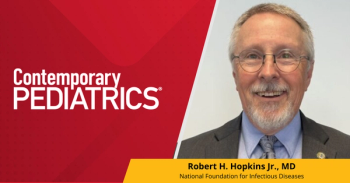
Did FDA safety communications alter opioid cough medication prescription behaviors?
An investigation examines whether safety communications from the US Food and Drug Administration (FDA) in 2017 and 2018 led to reductions in the prescription of cough and cold medications with codeine and hydrocodone.
Cough and cold medications with codeine and hydrocodone had been used in children for years, despite links to misuse and addiction in teenagers as well as a potential for fatal respiratory depression in younger children. The US Food and Drug Administration (FDA) released a safety communication that contraindicated codeine use in children aged 0 to 11 years on April 20, 2017, and then on January 11, 2018, the FDA announced that cough and cold medications with codeine and 11, 2018, the FDA issued a safety communication announcing that codeine and hydrocodone were no longer approved for use in children and teenagers aged 0 to 17 years. An i
The investigators looked at the 2014-2019 IQVIA Longitudinal Prescription Data, which includes 92% of all retail pharmacies in the United States. The months of the safety communications were excluded from analyses.
Form 2014-2019, they found 1,145,357 prescriptions for cough and cold medications with codeine and hydrocodone for children and teenagers aged 0 to 17 years. Nearly 60% of those prescriptions were for teenagers. The prescriptions were most commonly written by family medicine physicians (28.9%), pediatricians (22.2%), and nurse practitioners (10.5%). During the 2014-2019 period, codeine cough and cold medications went from 232,140 in 2014 to 23,008 in 2019. Neither communication was linked with level or slope changes in children aged 0 to 11 years or teenagers aged 12 to 17 years. Among hydrocodone medications, the prescriptions declined from 132,501 in 2014 to 32,232 in 2019. The 2018 safety communication was not linked to level changes, but it was linked to a slope increase.
The investigators concluded that a sizeable decline was seen in codeine medications, 90.1%, and hydrocodone medications, 75.7%. However, the FDA safety communications were not linked to changes in prescriptions. The investigators noted that this contrasted with previous research that had shown earlier safety communications, such as the 2013 FDA communication that contraindicated codeine following tonsillectomy, had led to changes in prescribing behaviors. The investigators noted that one potential reason for this could be that those previous safety communications had already started altering prescribing behaviors. However, with roughly 55,000 prescriptions still being written in 2019, further efforts to stop opioid cough and cold medications are still needed.
Reference
1. Chua K-P, Conti RM. Prescriptions for codeine or hydrocodone cough and cold medications to US children and adolescents following US Food and Drug Administration safety communications. JAMA Network Open. 2021;4(11). doi:10.1001/jamanetworkopen.2021.34142
Newsletter
Access practical, evidence-based guidance to support better care for our youngest patients. Join our email list for the latest clinical updates.







